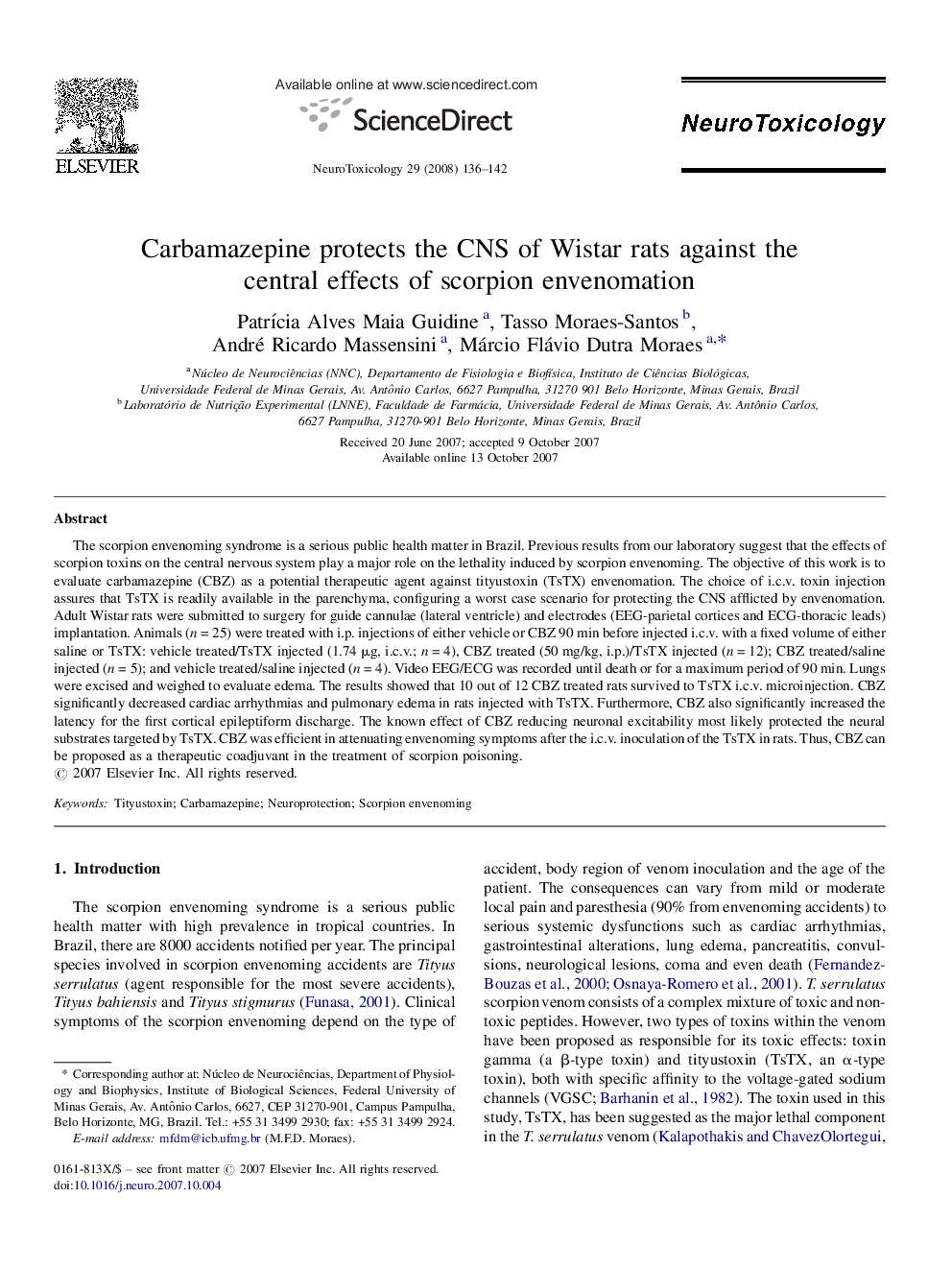| Article ID | Journal | Published Year | Pages | File Type |
|---|---|---|---|---|
| 2590454 | NeuroToxicology | 2008 | 7 Pages |
The scorpion envenoming syndrome is a serious public health matter in Brazil. Previous results from our laboratory suggest that the effects of scorpion toxins on the central nervous system play a major role on the lethality induced by scorpion envenoming. The objective of this work is to evaluate carbamazepine (CBZ) as a potential therapeutic agent against tityustoxin (TsTX) envenomation. The choice of i.c.v. toxin injection assures that TsTX is readily available in the parenchyma, configuring a worst case scenario for protecting the CNS afflicted by envenomation. Adult Wistar rats were submitted to surgery for guide cannulae (lateral ventricle) and electrodes (EEG-parietal cortices and ECG-thoracic leads) implantation. Animals (n = 25) were treated with i.p. injections of either vehicle or CBZ 90 min before injected i.c.v. with a fixed volume of either saline or TsTX: vehicle treated/TsTX injected (1.74 μg, i.c.v.; n = 4), CBZ treated (50 mg/kg, i.p.)/TsTX injected (n = 12); CBZ treated/saline injected (n = 5); and vehicle treated/saline injected (n = 4). Video EEG/ECG was recorded until death or for a maximum period of 90 min. Lungs were excised and weighed to evaluate edema. The results showed that 10 out of 12 CBZ treated rats survived to TsTX i.c.v. microinjection. CBZ significantly decreased cardiac arrhythmias and pulmonary edema in rats injected with TsTX. Furthermore, CBZ also significantly increased the latency for the first cortical epileptiform discharge. The known effect of CBZ reducing neuronal excitability most likely protected the neural substrates targeted by TsTX. CBZ was efficient in attenuating envenoming symptoms after the i.c.v. inoculation of the TsTX in rats. Thus, CBZ can be proposed as a therapeutic coadjuvant in the treatment of scorpion poisoning.
